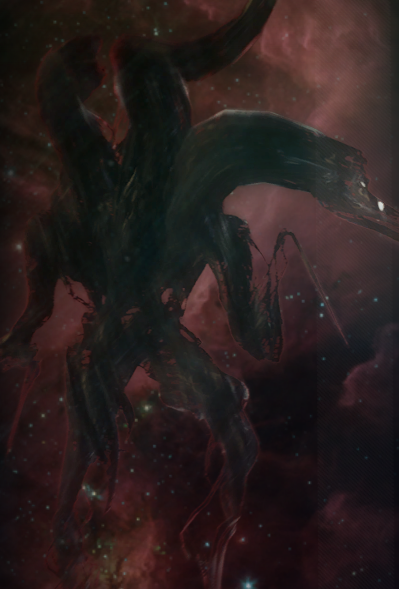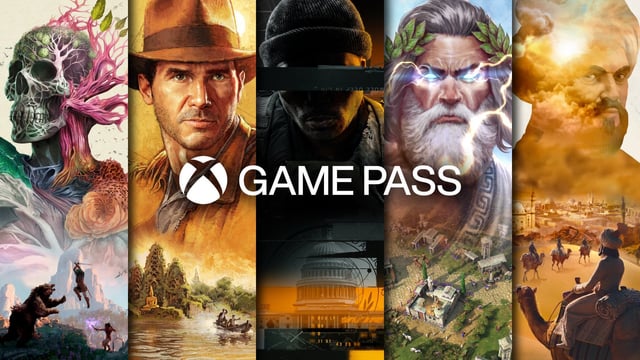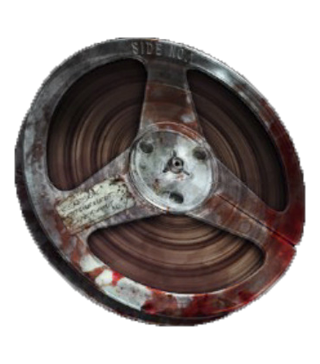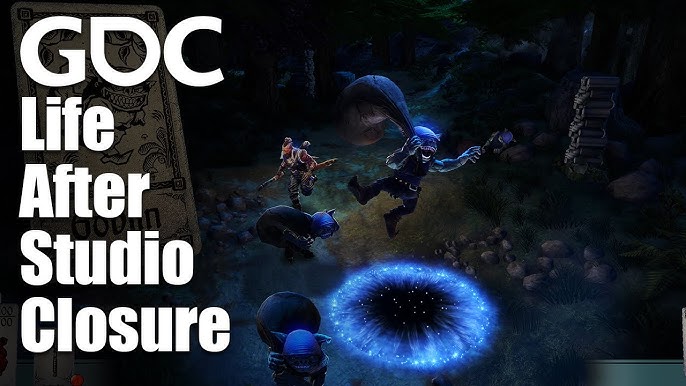Microsoft's Studio Closures: A Fatal Blow to PC Innovation?

The defaced Arkane Austin logo, symbolizing the abrupt end of the studio's creative output following its closure by Microsoft.
The silence is deafening. The creative wellsprings that birthed Prey and Hi-Fi Rush have been abruptly capped, leaving PC gamers wondering: Is this the future of innovative AAA development under Microsoft's Game Pass regime? The recent closure of Arkane Austin and Tango Gameworks isn't just another corporate restructuring; it feels like a gut punch to the heart of PC gaming. These studios, particularly Arkane, have deep roots in the PC community, often pushing the boundaries of what's possible on the platform, even when those efforts didn't always translate to blockbuster sales figures. Now, we're left to ponder whether this marks a fundamental shift in Microsoft's gaming strategy, potentially leaving PC gamers adrift.
Arkane Austin and Tango Gameworks: A Legacy on PC
These closures sting, particularly for PC gamers who’ve long championed these studios’ dedication to the platform. Let’s not forget their PC gaming legacy.
 A tense scene from Prey (2017) on PC, highlighting its intricate world design and system-driven gameplay, enriched by PC-specific features.
A tense scene from Prey (2017) on PC, highlighting its intricate world design and system-driven gameplay, enriched by PC-specific features.
For Arkane Austin, Prey (2017) stands as a testament to their commitment to intricate world design and deep, emergent gameplay systems. The game thrived on PC, benefiting from high-resolution textures, uncapped framerates, and a vibrant modding community that extended its lifespan. Its intricate level design and focus on player choice made it a standout title for PC gamers seeking something beyond the typical shooter experience.
 A missed beat in Hi-Fi Rush, illustrating the game's innovative rhythm-action gameplay and cel-shaded art style, which resonated strongly with PC gamers.
A missed beat in Hi-Fi Rush, illustrating the game's innovative rhythm-action gameplay and cel-shaded art style, which resonated strongly with PC gamers.
Tango Gameworks, on the other hand, delivered a shot of pure joy with Hi-Fi Rush. Its cel-shaded art style, reminiscent of Jet Set Radio, coupled with a soundtrack seamlessly integrated into the gameplay, made it a unique and memorable experience. The irony of its closure occurring after achieving such critical and commercial success (for Game Pass anyway) makes the decision particularly baffling. Hi-Fi Rush was a breath of fresh air, proving that AAA games could still surprise and delight.
Game Pass and Creative Risk
These closures must be analyzed through the lens of Microsoft's Game Pass strategy. Is Game Pass incentivizing Microsoft to prioritize games with predictable retention metrics and mass appeal over titles that dare to experiment, to innovate, but might not guarantee endless engagement loops?
 A graph illustrating the divergence between Game Pass subscriber growth and studio viability, raising questions about the impact of the subscription model on creative risks in game development.
A graph illustrating the divergence between Game Pass subscriber growth and studio viability, raising questions about the impact of the subscription model on creative risks in game development.
Redfall's critical failure undoubtedly acted as a catalyst for the Arkane Austin closure. But let's be honest: did Game Pass contribute to the pressure of creating a game that fit into specific engagement models? Does the subscription model inherently penalize creative risks in favor of calculated, safe investments designed to maximize playtime and retention? These are critical questions we, as PC gamers, need to be asking.
Industry Analyst Perspective
"Platform holders are increasingly looking to consolidate their investments around a smaller number of high-potential projects, and this can lead to difficult decisions about studio restructuring. Expect this trend to continue," says industry analyst Piers Harding-Rolls from Ampere Analysis, highlighting a concerning trend in the gaming industry.
Interview: Alexei Volkov, Prey Programmer
To gain further insight, I spoke with Alexei Volkov, a 42-year-old Prey-era senior programmer from Arkane Studios. Now working at Pixelpunk Studios in Lyon, France, he's developing Neon Decay, a cyberpunk-themed isometric RPG with roguelike elements. He shared his experiences and concerns about the changing landscape of game development.
 A portrait of Alexei Volkov, a former Arkane Studios programmer, now working on an indie game, reflecting on the challenges and rewards of independent game development.
A portrait of Alexei Volkov, a former Arkane Studios programmer, now working on an indie game, reflecting on the challenges and rewards of independent game development.
XenGamer: Alexei, can you paint a picture of the atmosphere at Arkane before and after the Microsoft acquisition? Be specific – what tangible changes did you observe in day-to-day operations, and how did that affect morale?
Alexei Volkov: Before, there was a palpable sense of… dare I say… artistic freedom. We were encouraged to experiment, to push boundaries. After the acquisition, things became… structured. More meetings, more data analysis, more focus on metrics. It felt less like making art and more like optimizing a product. Morale definitely took a hit. People started leaving, seeking more creative control elsewhere.
XenGamer: Did you personally feel any pressure, explicit or implied, to tailor your work towards Game Pass-driven development priorities? Were there internal discussions about maximizing player engagement and retention, even if it meant sacrificing creative vision?
Alexei Volkov: Absolutely. The focus shifted from creating a unique experience to maximizing player retention. We had meetings about engagement loops, daily active users, and monetization strategies. While these are important, they shouldn't be the primary drivers of creative decisions. It felt like we were being asked to create games that were designed to be addictive, rather than games that were designed to be good.
XenGamer: In your opinion, how can studios effectively balance artistic vision with the commercial demands of a subscription-based service like Game Pass, especially when dealing with a corporate parent like Microsoft?
Alexei Volkov: It's a difficult balancing act. I think the key is transparency and trust. The corporate parent needs to trust the studio's creative vision and allow them the space to experiment. The studio, in turn, needs to be aware of the commercial realities and find ways to incorporate engagement and retention strategies without sacrificing the core artistic integrity. Easier said than done, of course.
XenGamer: After seeing closures like these, are you concerned about the long-term viability of AAA PC game development outside of predictable genres and proven formulas? What needs to change?
Alexei Volkov: I am definitely concerned. These closures send a chilling message to the industry: that creative risk is no longer valued. Something needs to change. We need to find ways to support studios that are willing to take risks, to innovate, to create unique and memorable experiences. Perhaps more government funding for game development, or a greater emphasis on indie game development.
XenGamer: Do you have any message or advice for former colleagues impacted by the studio closures?
Alexei Volkov: Don't give up. Your talent and passion are still valuable. There are other studios out there that will appreciate your creativity. Consider joining an indie studio, or even starting your own. The road may be harder, but the rewards can be greater. And remember the amazing work you did. Prey still is a masterpiece.
The Future of Immersive Sims and Unique AAA Titles on PC
Will these Microsoft closures have a chilling effect, discouraging other studios from pursuing similar projects? Will the industry retreat further into iterative sequels and 'games-as-a-service' models, prioritizing monetization over innovation?
 The Tango Gameworks logo fading into static, symbolizing the uncertainty surrounding the future of the studio's innovative projects and the broader implications for the PC gaming landscape.
The Tango Gameworks logo fading into static, symbolizing the uncertainty surrounding the future of the studio's innovative projects and the broader implications for the PC gaming landscape.
The prospect is unsettling. The immersive sim genre, with its emphasis on player agency and emergent gameplay, has always been a niche but beloved corner of the PC gaming world. If studios are afraid to take risks on these types of games, we could see a decline in creativity and innovation. PC Gamers will need PC indie game alternatives to fill the void left by the Microsoft Xbox cuts on PC focus.
Conclusion
The closures of Arkane Austin and Tango Gameworks represent a significant loss for the PC gaming community. It's a stark reminder that even talented studios with passionate developers are vulnerable in an industry increasingly driven by data and short-term profits.
 PC gamers holding a candlelight vigil outside Arkane Austin, expressing their grief and frustration over the studio's closure and the potential impact on creative PC game development.
PC gamers holding a candlelight vigil outside Arkane Austin, expressing their grief and frustration over the studio's closure and the potential impact on creative PC game development.
As PC gamers, we have a responsibility to actively support studios that are still taking creative risks and pushing the boundaries of the medium. Games like Disco Elysium by ZA/UM, Outer Wilds by Mobius Digital, and Pentiment by Obsidian Entertainment embody this spirit. The dynamism of the PC gaming ecosystem depends on nurturing creativity and experimentation, even if those endeavors don't always guarantee immediate, mainstream commercial success. Let's show Microsoft, and the industry as a whole, that we value innovation and that we're willing to support the studios that deliver it. The AAA PC game future uncertain might have a chance if players rally behind those games.